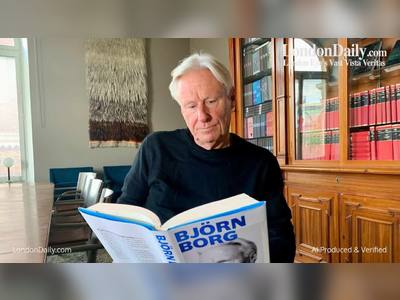When Extremism Hijacks Idealism: How the Baader-Meinhof Gang Emerged and Fell
Jason Burke’s The Revolutionists revisits the rise, operations and demise of one of Europe’s most infamous left-wing militant groups
In the late 1960s and 1970s, a highly charged mix of student activism, anti-imperialist fervour and disillusionment with Western capitalism spawned one of the most violent domestic revolutionary movements in post-war Europe: the Red Army Faction, also known originally as the Baader-Meinhof Group.
Jason Burke’s upcoming book The Revolutionists draws on newly declassified archives, interviews, and first-hand testimony to chart how a handful of radical actors—among them Andreas Baader, Gudrun Ensslin and Ulrike Meinhof—evolved from fringe dissenters into figures of terror.
Their early goals were ideological: to overthrow the structures they saw as complicit in imperialism, capitalist exploitation, and the legacy of authoritarianism in West Germany.
Burke shows how the group first mobilised through activities such as arson and bank robberies, then rapidly escalated to bombings, assassinations and kidnappings.
A key moment came during what is known as the “German Autumn” of 1977, when the RAF abducted Hanns Martin Schleyer, a prominent industrialist, and colluded with airport hijackers in the Lufthansa Flight 181 case.
The strategy was to provoke state overreaction, hoping this would radicalise broader sectors of society.
The authorities responded with increasingly severe counter-terrorism measures: surveillance, special police units, and legislative powers, which in turn fueled some sympathy for the RAF among left-wing youth who felt the state was becoming authoritarian.
Yet, despite periodic popular support and media attention, the RAF’s violent tactics also caused deep fractures—both in its public standing and within its own membership.
Deaths of major leaders in Stammheim Prison in 1977, internal dissent, betrayals, and an evolving political environment meant the group lost coherence and operational capacity.
By 1998 the RAF formally dissolved.
Burke’s work emphasises that the rise and fall of the Baader-Meinhof gang are not merely historical curiosities.
They serve as cautionary tales about what can happen when radical ideological conviction meets institutional weakness, state repression, and moral ambiguity.
The story resonates today, as political polarization returns to many democracies, and youth movements again flirt with extremism under the banner of moral outrage.
Burke forces readers to grapple with the tension between resistance and violence—and to ask when dissent becomes destructive.
Jason Burke’s upcoming book The Revolutionists draws on newly declassified archives, interviews, and first-hand testimony to chart how a handful of radical actors—among them Andreas Baader, Gudrun Ensslin and Ulrike Meinhof—evolved from fringe dissenters into figures of terror.
Their early goals were ideological: to overthrow the structures they saw as complicit in imperialism, capitalist exploitation, and the legacy of authoritarianism in West Germany.
Burke shows how the group first mobilised through activities such as arson and bank robberies, then rapidly escalated to bombings, assassinations and kidnappings.
A key moment came during what is known as the “German Autumn” of 1977, when the RAF abducted Hanns Martin Schleyer, a prominent industrialist, and colluded with airport hijackers in the Lufthansa Flight 181 case.
The strategy was to provoke state overreaction, hoping this would radicalise broader sectors of society.
The authorities responded with increasingly severe counter-terrorism measures: surveillance, special police units, and legislative powers, which in turn fueled some sympathy for the RAF among left-wing youth who felt the state was becoming authoritarian.
Yet, despite periodic popular support and media attention, the RAF’s violent tactics also caused deep fractures—both in its public standing and within its own membership.
Deaths of major leaders in Stammheim Prison in 1977, internal dissent, betrayals, and an evolving political environment meant the group lost coherence and operational capacity.
By 1998 the RAF formally dissolved.
Burke’s work emphasises that the rise and fall of the Baader-Meinhof gang are not merely historical curiosities.
They serve as cautionary tales about what can happen when radical ideological conviction meets institutional weakness, state repression, and moral ambiguity.
The story resonates today, as political polarization returns to many democracies, and youth movements again flirt with extremism under the banner of moral outrage.
Burke forces readers to grapple with the tension between resistance and violence—and to ask when dissent becomes destructive.









